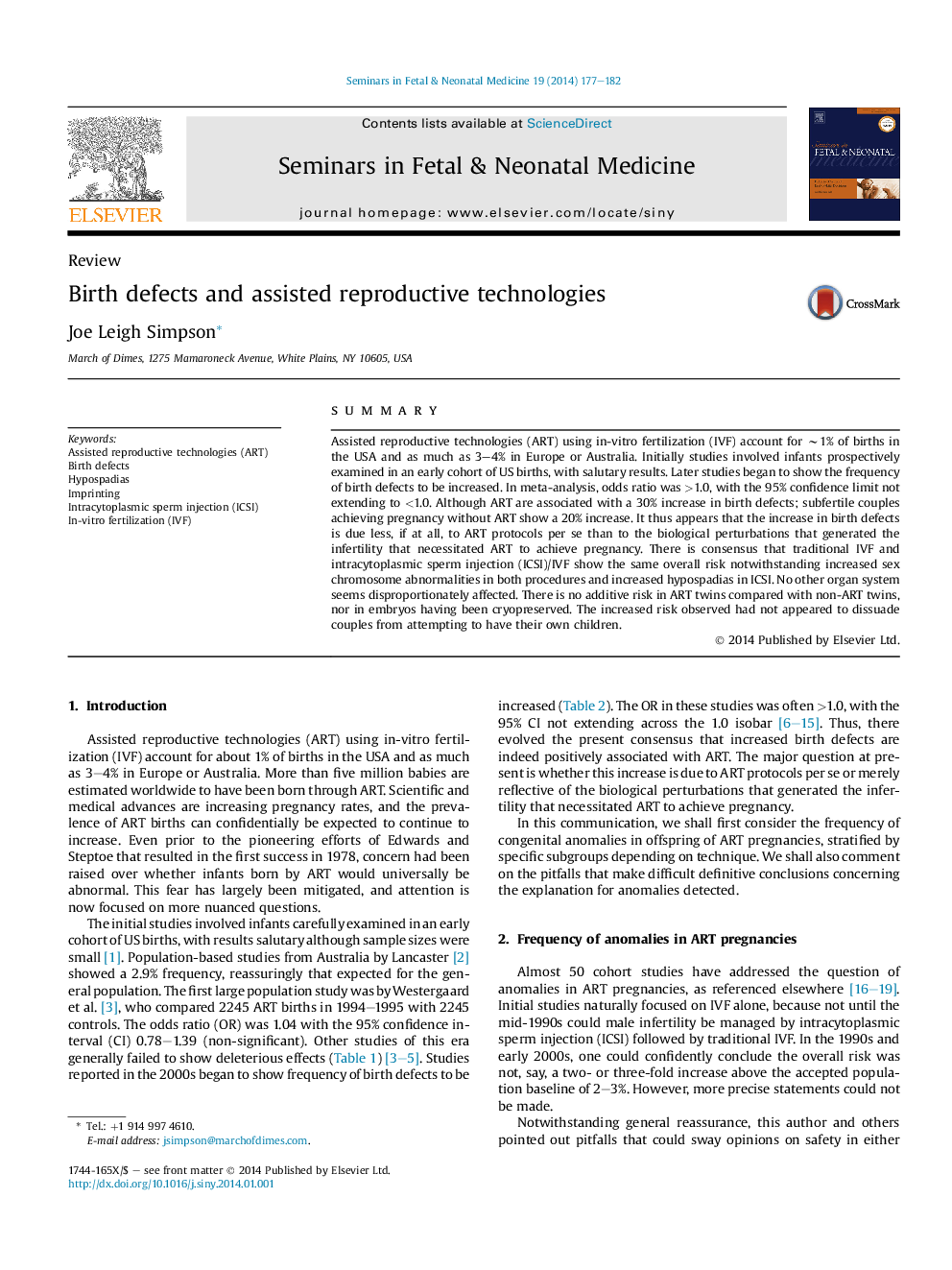| کد مقاله | کد نشریه | سال انتشار | مقاله انگلیسی | نسخه تمام متن |
|---|---|---|---|---|
| 3974251 | 1256979 | 2014 | 6 صفحه PDF | دانلود رایگان |
SummaryAssisted reproductive technologies (ART) using in-vitro fertilization (IVF) account for ∼1% of births in the USA and as much as 3–4% in Europe or Australia. Initially studies involved infants prospectively examined in an early cohort of US births, with salutary results. Later studies began to show the frequency of birth defects to be increased. In meta-analysis, odds ratio was >1.0, with the 95% confidence limit not extending to <1.0. Although ART are associated with a 30% increase in birth defects; subfertile couples achieving pregnancy without ART show a 20% increase. It thus appears that the increase in birth defects is due less, if at all, to ART protocols per se than to the biological perturbations that generated the infertility that necessitated ART to achieve pregnancy. There is consensus that traditional IVF and intracytoplasmic sperm injection (ICSI)/IVF show the same overall risk notwithstanding increased sex chromosome abnormalities in both procedures and increased hypospadias in ICSI. No other organ system seems disproportionately affected. There is no additive risk in ART twins compared with non-ART twins, nor in embryos having been cryopreserved. The increased risk observed had not appeared to dissuade couples from attempting to have their own children.
Journal: Seminars in Fetal and Neonatal Medicine - Volume 19, Issue 3, June 2014, Pages 177–182
